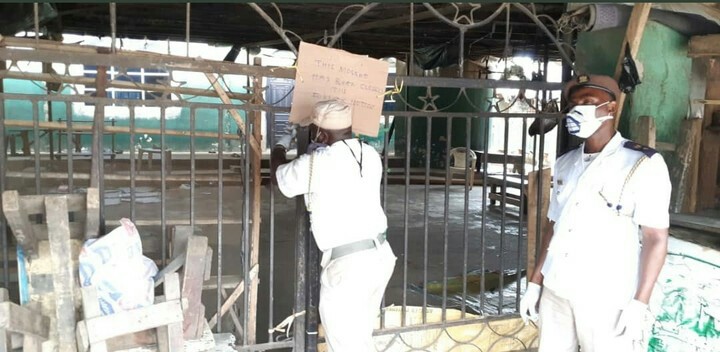Business
FIRS: Tax, The Untaxed and the Taxables

By Salisu Na’inna Dambatta
It is common truth that no country on earth, including Nigeria, is able to tax all the taxables, or even bring all the untaxed into the tax net. Tax registers everywhere rarely contain all the untaxed as required by the tax laws.
Even though the Federal Inland Revenue Service (FIRS) which last tax year (2022) celebrated a record N10.1 trillion tax collection for the federation, the country wants it to generate more than that amount of money in 2023.
It is a positively achievable ambition by the top tax man, Muhammadu Nami, who turbo-charged the tax gathering machinery to haul that N10.1 trillion despite low oil revenue and targeted tax waivers and holidays granted to encourage higher economic activities in some sectors. In 2022, over ₦1.8 trillion was granted in tax waivers and incentives. If this had been collected by the FIRS in tax revenue, the agency would have raked in almost N12 trillion in 2022.
As at the half of 2023, the FIRS had raked in over N5.5 trillion. Two interesting facts make this tax revenue collection remarkable. One, it is the highest tax revenue collection made in the first six months of any fiscal year. And in June of 2023 alone, N1.6 trillion was raked in—the highest tax revenue collection made in a single month in Nigeria’s history.
While ₦10.1 trillion is phenomenal by any standards, a doubling of this can be achieved by the FIRS and State Revenue Services if they can successfully tax the untaxed and bring in the taxables. A consultant’s report submitted to the former Minister of Finance, Mrs. Kemi Adeosun identified and listed about a thousand taxable activities that could yield huge revenue for Nigeria that were yet untaxed.
For instance, the countless iron mongers in cities, towns and villages all over the country, who forge beautiful doors, windows, security and ornamental railings, are definitely untaxed. The National Bureau of Statistics reported that in the third and fourth quarters of 2021 iron, steel and metals worth N837 billion were imported to Nigeria. Road-side informal iron-mongers who turn a significant portion of those products into useful items do not pay tax on their production activities.
The furniture industry in Nigeria has been transformed beyond imagination. So also the entertainment sector. Both are probably untaxed, or minimally taxed. The two sub-sectors can be taxed appropriately to boost Federal government revenue.
Hewers of wood, lumberers and drawers of water are depleting our forests, turning Savannah to sahelian bushes, rain forests into derived Savannah, just to produce charcoal for energy and timber for construction and furniture, without being taxed. Taxing them heavily enough can discourage the destruction of the country’s flora, and consequently, fauna, and the whole environment.
Another way in which huge tax revenue is lost is through dodging withholding tax by landlords who own rental properties such as residential, business premises and even undeveloped plots let out to mechanics and other artisans.
Huge number of warehouses let out at profitable rates are mostly untaxed, especially those which are located in the outskirts of major cities: Lagos, Abuja, Kaduna, Port Harcourt, Kano, Ibadan, Warri, Onitsha and even Owerri, among others.
The “unrecorded and unmonitored” economy, reportedly constituted a huge 57.7 per cent of the country’s total economy in 2022. It thrives and enriches its operators, but deprives the national treasury of a fraction of its treasures through the payment of taxes or fees and levies.
“The size of Nigeria’s informal (shadow) economy is estimated to be 57.7% which represents approximately $1,164 billion (over a trillion USD) at GDP PPP,” a report based on Quarterly Informal Economy Survey (QIES) by World Economics, London, indicates.
The $1,164 billion shadow economy in 2022 alone, is just a shadow below nine times the cost of the Kano-Maradi and Kano-Dutse Gadawur dual track railway lines under construction. Nigeria borrowed $1.9 billion to finance the project. Collecting just ten per cent of $1,164 billion would have almost covered the price of the project.
That lost tax revenue derivable from the shadow economy could have been utilised in massive rural electrification projects to power micro and small businesses that contribute to economic growth in rural areas.
It is perhaps in its bid to tax the untaxed that the FIRS recently entered a partnership with the Market Traders Association of Nigeria (MATAN), where the FIRS would educate members of MATAN on tax payments and cooperate with them to charge and remit Value Added Tax (VAT) in the course of their businesses. This masterstroke partnership may hold the key to untapping the volume of taxes hitherto uncollected from country’s trillion-dollar worth informal sector.
More of these kinds of partnerships need to be seen between tax authorities and organized unions in the business place if the FIRS and its colleagues in the State Internal Revenue Services must tax the untaxed taxables.
Salisu Na’inna Dambatta is a retired federal Director of Information.
-

 Celebrities3 days ago
Celebrities3 days agoOriyomi Hamzat hospitalised after Ibadan stamdpede
-

 Metro/Crime5 days ago
Metro/Crime5 days agoNigerian varsity lecturer assassinated
-

 News3 days ago
News3 days agoOoni’s Ex-Wife Arrested Over Alleged Death of 35 Children In Ibadan
-

 News3 days ago
News3 days agoOoni breaks silence over Ibadan stamdpede, sends message to party involved
-

 News5 days ago
News5 days agoState Govt seals churches, other establishments
-

 Politics5 days ago
Politics5 days agoBola Tinubu Approves Eight New Appointments (Full List)
-

 Osun News1 day ago
Osun News1 day agoOsogbo agog as Osun former Deputy Gov, Titi Tomori-ponle launches TTP Foundation
-

 Politics2 days ago
Politics2 days agoCourt Sacks APC State Chairman








